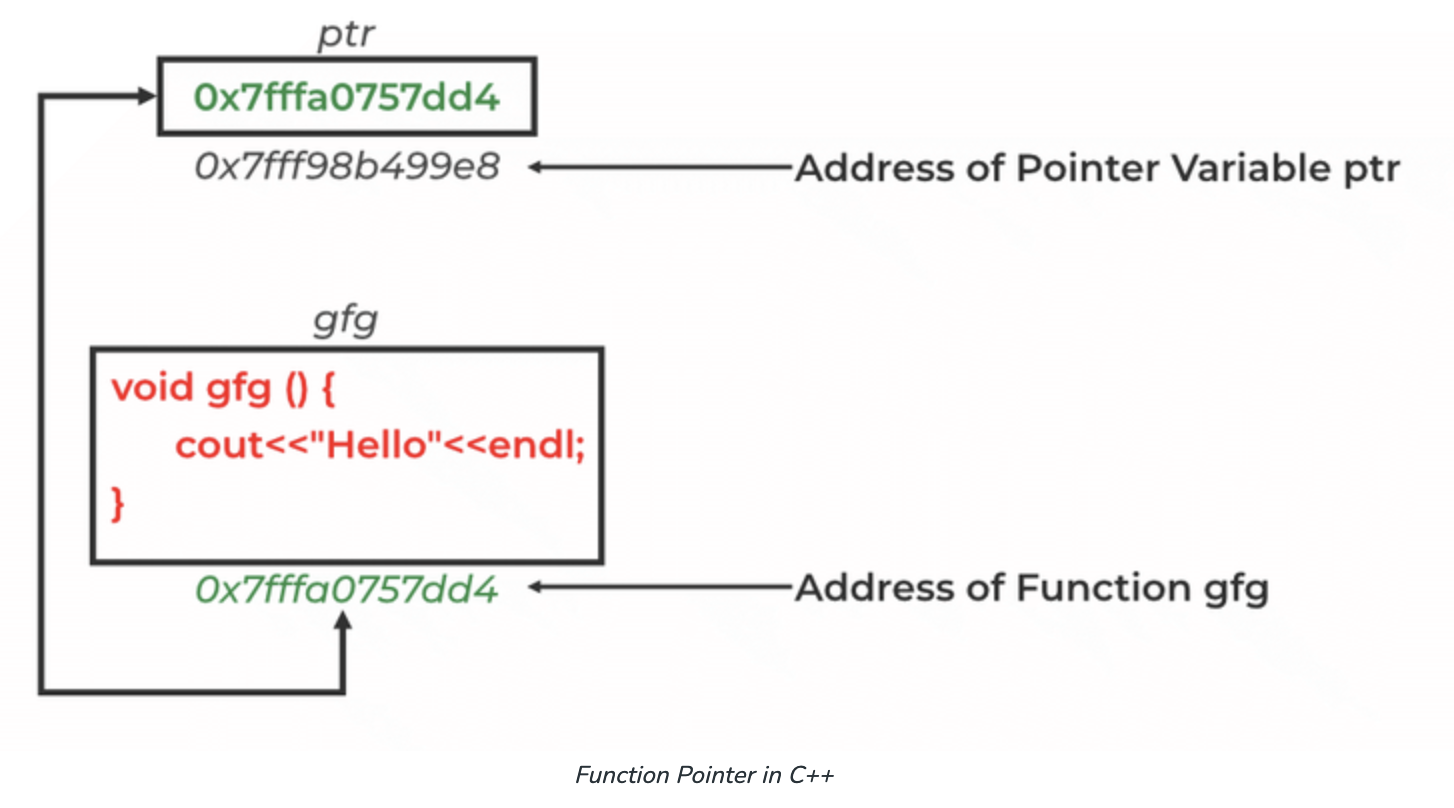Function Pointer
In C++.
- The function pointer is used to point functions, similarly, the pointers are used to point variables.
- It is utilized to save a function’s address.
- The function pointer is either used to call the function or it can be sent as an argument to another function.

return_type (*FuncPtr) (parameter type, ....);Declaring and referencing:
// Declaring
return_type (*FuncPtr) (parameter type, ....);
// Referencing
FuncPtr= function_name;
// Dereferencing
data_type x=*FuncPtr;
- https://stackoverflow.com/questions/2298242/callback-functions-in-c
- https://stackoverflow.com/questions/5645375/how-do-i-make-a-function-asynchronous-in-c
Apple interview?:
// Define callback signature.
typedef void (*DoneCallback) (int reason, char *explanation);
// A method that takes a callback as argument.
void doSomeWorkWithCallback(DoneCallback done)
{
...
if (done) {
done(1, "Finished");
}
}
//////
// A callback
void myCallback(int reason, char *explanation)
{
printf("Callback called with reason %d: %s", reason, explanation);
}
/////
// Put them together
doSomeWortkWithCallback(myCallback);- Explain the purpose of the
typedefstatement at the beginning of the code. Thetypedefstatement creates an alias for a function pointer type. In this case,DoneCallbackis defined as a type representing a pointer to a function that takes two arguments: an integerreasonand a pointer to a character arrayexplanation, and returns void. This alias simplifies the syntax when declaring function pointers of this type. - Describe how the
doSomeWorkWithCallbackfunction works and what role theDoneCallbackplays.doSomeWorkWithCallbackis a function that takes a callback function (DoneCallback) as an argument. Inside this function, if the callback function is not null (i.e., if it has been provided), it is called with1as the reason and"Finished"as the explanation. - Provide an explanation of the
myCallbackfunction and how it’s used.myCallbackis an example of a callback function. It matches the signature ofDoneCallback, taking an integerreasonand a pointer to a character arrayexplanation. In this function, a message is printed to the console indicating the reason and explanation received. - Discuss how this setup facilitates modularity and flexibility in programming.
Using function pointers like
DoneCallbackallows for a more modular and flexible design. By passing callback functions as arguments to other functions, different behaviours can be achieved without modifying the core logic of those functions. This promotes code reuse and makes the codebase more adaptable to changes. - Additionally, in C++, how can you make a function asynchronous? What are some common techniques and libraries used for asynchronous programming in C++?
Making a function asynchronous in C++ often involves utilizing threading libraries like
std::thread,std::async, or platform-specific APIs. These libraries allow you to execute functions concurrently, either in separate threads or asynchronously. Other techniques involve using event-driven programming frameworks or asynchronous I/O libraries like Boost.Asio or C++11’sstd::futureandstd::promisefor asynchronous task execution and coordination. These approaches enable efficient utilization of system resources and improved responsiveness in applications.